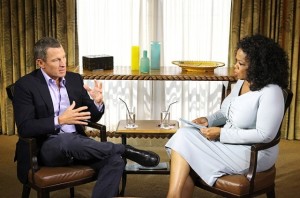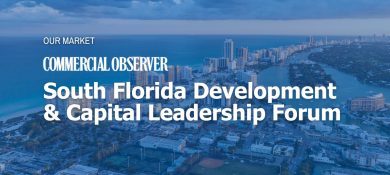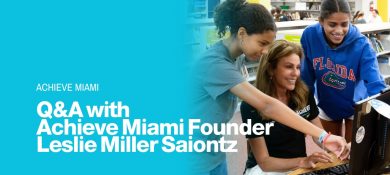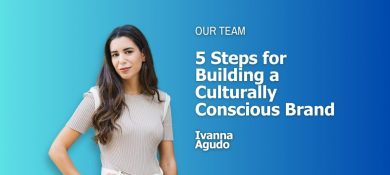Last night’s primetime Lance Armstrong/Oprah interview — and the days of speculation leading up to it — was met with a wave of criticism from observers who billed the on-air conversation as little more than a charade aimed at garnering sympathy and resolving his own guilty conscience. But at least one expert says there’s likely more to the story.
 Miami attorney Marty Steinberg, a partner with law firm Bilzin Sumberg, represented former baseball player Mark McGwire in his high profile congressional hearing stemming from allegations of steroid use.
Miami attorney Marty Steinberg, a partner with law firm Bilzin Sumberg, represented former baseball player Mark McGwire in his high profile congressional hearing stemming from allegations of steroid use.
Steinberg, as reported in the Washington Post this week and on HuffPost Live this morning, believes Armstrong’s mea culpa may have had more to do with mitigating criminal and civil liability than it does winning back the hearts and minds of the public.
It remains to be seen whether Armstrong’s decision to come clean will help restore his formerly-pristine image, not to mention whether it has any impact on his legal standing. In any case, we’ll keep an eye on his next move.
![]()
Lance Armstrong seeks agreements with Justice Department and USADA
By Liz Clarke
From the moment Lance Armstrong radically reversed tactics — admitting that he used performance-enhancing drugs — he started banking that his confession will have value in two arenas that have nothing to do with Oprah Winfrey’s television ratings or his standing in the public eye.
One is the U.S. Anti-Doping Agency, which has the latitude to shorten his lifetime ban from competition. The other is the U.S. Justice Department, which is weighing whether to join a whistleblower suit that could cost him nearly $100 million.
Confessing his doping after years of vehement denials won’t be enough to prevail in either arena, according to those close to the situation. The interview with Winfrey — the specifics of which have not been revealed — is a mere baby step on a longer, more difficult road to redemption.
But as Winfrey went on “CBS This Morning” to publicize her exclusive interview, which will air Thursday and Friday nights, Armstrong’s representatives continued working behind the scenes to reach a settlement with the Justice Department and chart a path for his return to competition, likely in triathlon.
To persuade the U.S. Anti-Doping Agency to allow him to compete again, Armstrong must agree to provide specific information about cycling’s doping culture over the past decade: the drugs that riders took, where they got them, how they skirted detection and outfoxed drug tests.
Nothing short of a complete “road map” of cycling’s doping era will be persuasive, given Armstrong’s refusal to come forward in June when USADA was building its case against him and was more inclined to negotiate lenient penalties in exchange for information.
A face-to-face conversation in December between Armstrong and USADA CEO Travis Tygart has been described as ending poorly, but USADA’s general counsel Bill Bock said in an interview Tuesday night that it was “civil on both sides.” Tim Herman, a lawyer for Armstrong, described it as “very cordial.” So perhaps the relationship, while often contentious over the past decade, is not irrevocably damaged.
Armstrong was stripped of his seven Tour de France titles and banned from the sport for life in October, following USADA’s 1,000-page report portraying him as the mastermind of the most sophisticated doping scheme in sporting history.
According to USADA’s code, a lifetime ban from competition can be scaled back to no fewer than eight years — and that’s assuming the athlete confesses fully and provides new information that helps USADA ensure clean competition in the future.
That’s the sticking point.
Armstrong, 41, isn’t interested in cooperating unless he can return to competition much sooner. He’s arguing that USADA has the latitude to lessen that penalty, as it did with the cyclists who confessed their own doping in testifying against him in June. They were suspended six months.
Armstrong’s negotiating window with the Justice Department is much shorter. Unless both parties agree to an extension, the Justice Department must decide by Thursday whether to join a whistleblower suit filed by Floyd Landis, another disgraced cyclist who was stripped of his 2006 Tour de France title.
The suit asserts that Armstrong defrauded the federal government by doping while his team received roughly $35 million in sponsorship revenue from the U.S. Postal Service. Its contract made clear that riders were to compete “clean.” In whistleblower cases, damages are typically tripled.
The suit would be strengthened considerably if the Justice Department gets involved, because Landis would have to bear the legal costs going forward, and it’s not clear what Armstrong can offer in terms of restitution or information.
He reportedly has offered to repay a portion of the sponsorship dollars, but his Washington-based lawyer, Robert D. Luskin, insisted Tuesday that Armstrong has not offered to incriminate any of his associates as part of a settlement, although talks for a mutually satisfactory conclusion continue.
“There is no truth to the suggestion that Lance has offered to minimize his own liability by implicating others,” Luskin said.
While much has been made about the legal liability Armstrong has exposed himself to by confessing his doping to Winfrey, it may not figure prominently in the whistleblower suit, in which the crux of his defense won’t hinge on defeating doping allegations. Rather, it’s expected to be two-fold: That the U.S. Postal Service’s contract was with Tailwind Sports, which owned the team, rather than Armstrong himself; and that the U.S. Postal Service benefited handsomely from the relationship rather than being defrauded by it, earning millions of dollars in exposure through its association.
“We are engaged in constructive discussions about reaching a fair resolution,” Luskin said. “We hope they’ll succeed.”
Marty L. Steinberg, among the lawyers who represented Mark McGwire during Major League Baseball’s steroids probe, said he imagined Armstrong’s decision to make such a high-profile public confession followed a careful legal analysis of how it would affect his criminal and civil liability going forward.
“People can contest evidence forever, but it’s very difficult to contest your own admission,” said Steinberg, a partner with Miami-based Bilzin Sumberg. “I think the American public is very forgiving. The problem is, the American public can’t give you immunity.”







 See More Blogs
See More Blogs
Comments